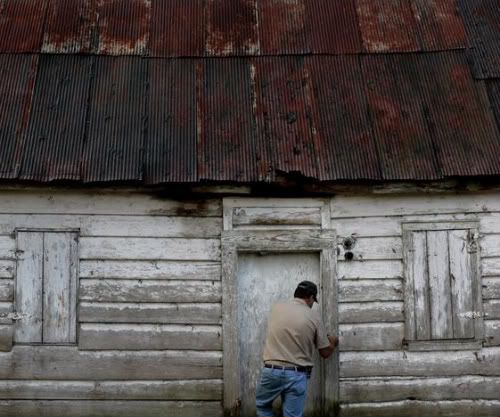I have been interested in genealogy for years, have spent many years researching my own family and helping other people explore their family trees.
One of the myths about African-American genealogy is that their history stops, once you get back to 1865; that is is impossible to climb the brick wall of enslavement. At Afrigeneas we have helped thousands break through that brick wall.
I stumbled across a wonderful article and photo journal documenting Michelle Robinson Obama’s paternal roots which led back to the Friendfield Plantation in South Carolina.
The article, and photo gallery were in the Washington Post:
A Family Tree Rooted In American Soil:Michelle Obama Learns About Her Slave Ancestors, Herself and Her Country

Slave Quarters, Friendfield Plantation
The Friendfield Plantation was located in Georgetown County, South Carolina.
To Rep. James E. Clyburn (D), whose district includes part of Georgetown County, the possibility that a descendant of slaves could be first lady is just as momentous as the prospect of a black man as president. “I believe she could play as pivotal a role as her husband could, if not more so. It would allow us an opportunity to get beyond some of our preconceived notions, some of our prejudices,” he said.
For me, a great granddaughter of slaves who still owns part of the land in Loudoun VA where my family was held in bondage, but who rose up from slavery to pursue a similar dream of education, I am so proud that for the first time in American History, we have the chance to have an acknowledged descendant of that important part of our history, as our First Lady.
We all know about Carolina rice, and some of you may have grown up hearing the tune from the commercial. But the life of rice workers was perilous; malarial conditions, snakes, and lung disorders plagued the slaves that worked the fields. Early rice planting was taught to the owners of Carolina plantations by specific ethnic groups from Africa, who had centuries of planting expertise on the continent.
An hour northeast of Charleston in the Low Country region, Georgetown County was settled in early Colonial days. By the mid-1800s, thousands of slaves worked its snake- and mosquito-infested riverfront fields, producing half of the rice consumed in the United States.Friendfield thrived for a century as a productive plantation, but its fortunes collapsed after the Civil War. The rice mill burned, the grand house was looted, and smallpox ravaged white and black households alike. Many of Friendfield’s former slaves continued to live on the property as sharecroppers, in a community known as the Hill that included a church and a clinic.
One Friendfield worker during this period is believed to have been Jim Robinson. He appears in the 1880 Census, recorded as an illiterate farmhand living in close proximity to the plantation’s white owners. He was married with a 3-year-old son, Gabriel. A second son, Fraser, Michelle Obama’s great-grandfather, was born in 1884.
I don’t want to copy more of the story. Please take a look at the photo gallery, which includes audio clips with some of the people interviewed.
Only a few more days to go folks.
Let’s do it.
(cross posted to Daily Kos)
5 comments